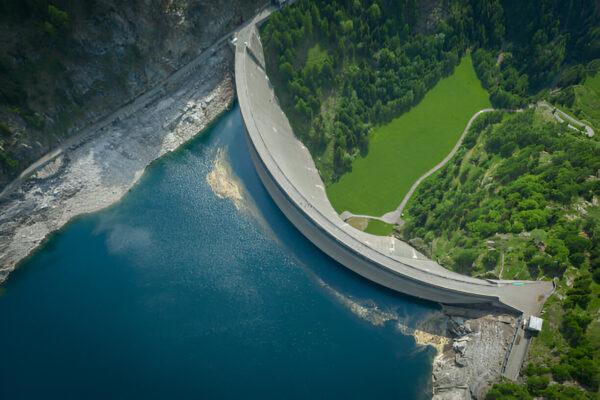Energy Consumption – Environmental issues have become a major topic of discussion in both developing and developed countries due to the widespread environmental degradation. This also raises questions about global warming and climate change, which are primarily caused by greenhouse gas emissions.
As our society becomes more dependent on electricity and businesses rely on the means of production, it is important to understand the implications of our energy consumption and find ways to reduce its negative impact on the natural environment.
Read More: Technology in Sustainable Business
Table of Contents
ToggleEnergy Consumption
Energy consumption refers to the amount of energy used by individuals, households, businesses, and industries for various activities. It encompasses all forms of energy used for heating, cooling, transportation, manufacturing, and electricity generation.
High levels of energy consumption, especially from non-renewable sources, lead to increased greenhouse gas emissions, contributing to climate change and air pollution. It is the reason why understanding and managing energy consumption is crucial for ensuring the efficient use of resources and maintaining a stable energy supply.
Energy Consumption Contribute to Carbon Emission
Energy consumption is a major contributor to carbon emissions, which significantly impact the environment and climate change. Fossil fuels, such as coal, oil and gas, are by far the largest contributor to global climate change, accounting for over 75 percent of global greenhouse gas emissions and nearly 90 percent of all carbon dioxide emissions.
The process when fossil fuels such as coal, oil, and natural gas are burned for energy, they release carbon dioxide (CO2) and other greenhouse gases (GHGs) into the atmosphere. These gases trap heat, leading to the greenhouse effect and global warming. The energy sector, such as electricity generation, transportation, and industrial processes, is the largest source of CO2 emissions worldwide.
Limited Energy Resources
The next condition that makes energy consumption require efficiency is because of the limited resources on earth. Non-renewable energy resources include coal, natural gas, oil, and nuclear energy, once they run out, they cannot be replaced. This will be a big problem for humanity because we currently depend on them to meet most of our energy needs.
Unfortunately, humans rely on non-renewable resources as its main source of energy. About 80 percent of the total amount of energy used globally each year comes from fossil fuels. The dependency on fossil fuels is because they are rich in energy and relatively cheap to process.
Read More: ESG Trends 2023: Sustainability Efforts in Driving Business
Renewable Energy Still Requires Effort

Renewable energy sources such as solar, wind, hydro and geothermal are essential to reducing our dependence on fossil fuels and mitigating climate change. However, the transition to renewable energy still requires efforts in terms of infrastructure, technology and costs.
Building and upgrading infrastructure to support renewable energy is complex. This includes building solar farms, wind turbines and hydroelectric power plants, as well as upgrading the grid to handle variable power sources.
On the technology side, ongoing research and development is needed to improve the efficiency and reduce the cost of renewable energy technologies. Innovations in materials, manufacturing processes and system design are essential to making renewable energy more competitive with traditional sources.
In this case, the initial investment costs can still be high. That is why transition to renewable energy requires financial planning and support from the public and private sectors.
Responsible Energy Consumption
With all these conditions, households and industries need to be more responsible for their energy consumption. Responsible energy consumption involves using energy resources efficiently and sustainably to minimize environmental impact, reduce costs, and promote long-term energy security. It encompasses a range of practices and strategies that individuals, businesses, and governments can adopt to ensure that energy is used in a way that meets present needs without compromising the ability of future generations to meet theirs.
to support more responsible energy consumption and reduce the impact on climate change and emissions, Satuplatform is now present as an all-in-one solution with various services that help companies achieve their ESG initiatives. Try FREE DEMO now!
Similar Article
Low GHG Emission, High Impact: Everyday Materials That Could Reshape Green Manufacturing
The shift toward sustainable production practices has spurred growing interest in low-carbon materials that support greener industrial processes. Emerging materials,…
Does “Eco-friendly” Labels Mean Green Product in Green Industry?
Businesses and consumers alike are navigating a flood of products claiming to be “eco-friendly” or “green.” These labels, often used…
Dilema Biomassa: Transisi Energi Berkelanjutan atau Perusakan Lingkungan?
Dalam upaya mencapai target net-zero emission pada 2060, Indonesia mendorong transisi energi dari bahan bakar fosil ke sumber energi terbarukan.…
Energi Terbarukan di Indonesia: Mengapa Surya dan Hidro Menjadi Pilihan Utama?
Sebagai negara kepulauan terbesar di dunia, Indonesia menghadapi tantangan besar dalam memenuhi kebutuhan energinya. Di tengah komitmen untuk mencapai net…
Emisi Karbon Penerbangan Meningkat: Tantangan Baru bagi Industri Aviasi
Emisi Karbon Sektor Penerbangan Setelah mengalami penurunan drastis selama pandemi COVID-19, industri penerbangan global kini menunjukkan pemulihan yang signifikan. Namun,…
Adaptasi Bisnis di Era Krisis Energi
Pasokan bahan bakar menjadi semakin terbatas, dengan harga yang melambung tinggi, merupakan salah satu bukti bahwa dunia sedang mengalami krisis…







